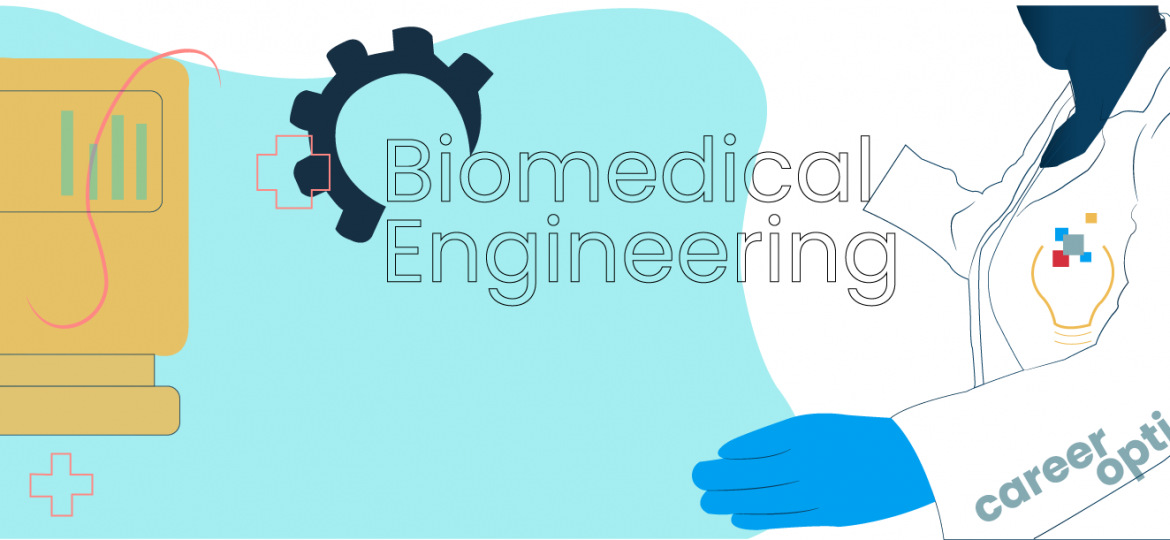
Biomedical Engineering in Germany: Study Abroad
Biomedical Engineering is a rapidly growing field that combines engineering principles with medical and biological sciences to develop innovative solutions for healthcare. Germany has emerged as a leading destination for international students seeking high-quality education in this field. This comprehensive guide will provide international students with valuable information on degree programs, admission requirements, scholarship opportunities, and research and job prospects in the field of Biomedical Engineering in Germany.
Introduction to Biomedical Engineering
Biomedical Engineering involves the application of engineering principles and techniques to the field of medicine and healthcare. It combines knowledge from various disciplines such as biology, chemistry, physics, and engineering to design and develop medical devices, diagnostic tools, and therapeutic solutions. Biomedical Engineers play a crucial role in improving healthcare outcomes by developing technologies that aid in diagnosis, treatment, and rehabilitation.
Degree Programs and Admission Requirements
Study in Germany offers a wide range of degree programs in Biomedical Engineering at both undergraduate and postgraduate levels. Some popular universities offering these programs include Technical University of Munich, Karlsruhe Institute of Technology, RWTH Aachen University, and University of Stuttgart, to name a few.
Undergraduate Programs
To pursue an undergraduate degree in Biomedical Engineering in Germany, international students must meet specific admission requirements. These requirements typically include:
- High school diploma or equivalent with a strong focus on mathematics, physics, and chemistry.
- Proof of English language proficiency through tests such as IELTS or TOEFL.
- Some universities may require students to pass the Test for Academic Studies (TestAS) to assess their aptitude for studying in Germany.
The duration of an undergraduate program in Biomedical Engineering in Germany is usually three to four years.
Postgraduate Programs
For students aiming to pursue a master’s degree or Ph.D. in Biomedical Engineering in germany, the admission requirements may vary slightly. Typically, the admission requirements for postgraduate programs include:
- A bachelor’s degree in a related field (e.g., Biomedical Engineering, Electrical Engineering, Mechanical Engineering, etc.).
- Proficiency in English language.
- High grades in relevant coursework during undergraduate studies.
- A strong letter of motivation and recommendation letters.
- Some universities may require students to take the Graduate Record Examination (GRE).
The duration of a master’s program is generally two years, and Ph.D. programs can vary in duration based on the research topic.
Want to Study in Germany: Navigating Career Pathways for Graduates
Scholarship Opportunities for International Students
Germany offers numerous scholarship opportunities to international students pursuing Biomedical Engineering programs. Some of these scholarships are:
DAAD Scholarships
The German Academic Exchange Service (DAAD) provides scholarships to international students for various degree levels. DAAD scholarships cover tuition fees, monthly stipends, and health insurance costs, allowing students to focus on their studies without the financial burden.
Deutschland stipendium
The Deutschland stipendium is a merit-based scholarship program that provides financial support to both domestic and international students. The scholarship is awarded irrespective of the student’s nationality and covers a monthly stipend for a specific duration.
University-specific Scholarships
Many universities offer their own scholarships to international students, including those studying Biomedical Engineering in germany. These scholarships may be based on academic performance, financial need, or both. Students are encouraged to explore the scholarship options available at their chosen university.
Research and Job Opportunities in the Field
Study in Germany provides excellent research and job opportunities for Biomedical Engineering graduates. The country is home to numerous research institutions, hospitals, and industry leaders in the healthcare sector. These institutions actively collaborate with universities and offer exciting research positions and internships to students.
Graduates in Biomedical Engineering can find employment in various sectors, including medical device companies, pharmaceutical companies, research and development organizations, and healthcare institutions. Job roles may range from medical device design engineer to clinical research associate, and opportunities for career growth abound.
Conclusion
Study Abroad in Germany offers international students a comprehensive and rewarding experience in the field of Biomedical Engineering. The country’s top-notch educational institutions, generous scholarship opportunities, and thriving research and job prospects make it an ideal destination for students aspiring to excel in this field. By pursuing a degree in Biomedical Engineering in Germany, international students can gain the knowledge, skills, and exposure needed to make meaningful contributions to the advancement of healthcare technology and improve patient care on a global scale.
For more information , Visit or get in touch with our trusted study abroad consultancy. Explore our wide range of services for international students interested in studying in renowned destinations such as Study in UK, Study in New-Zealand, Study in Ireland, Study in Australia, Study in Singapore and many other countries.


